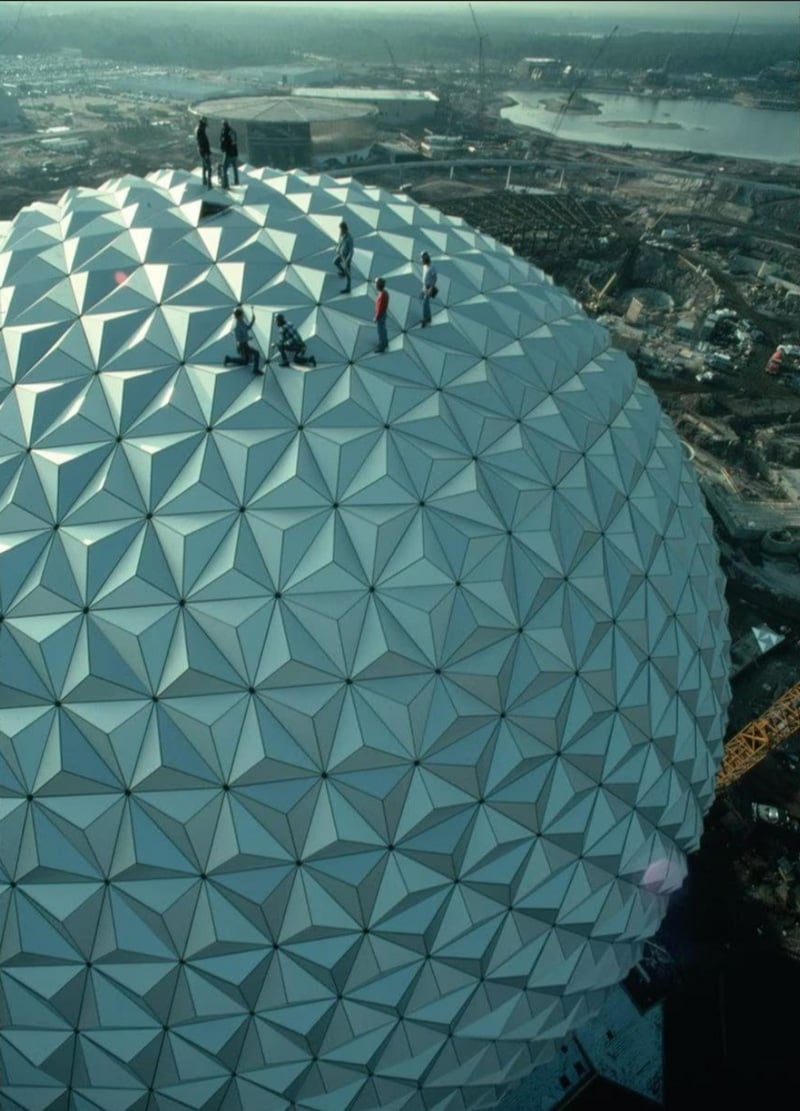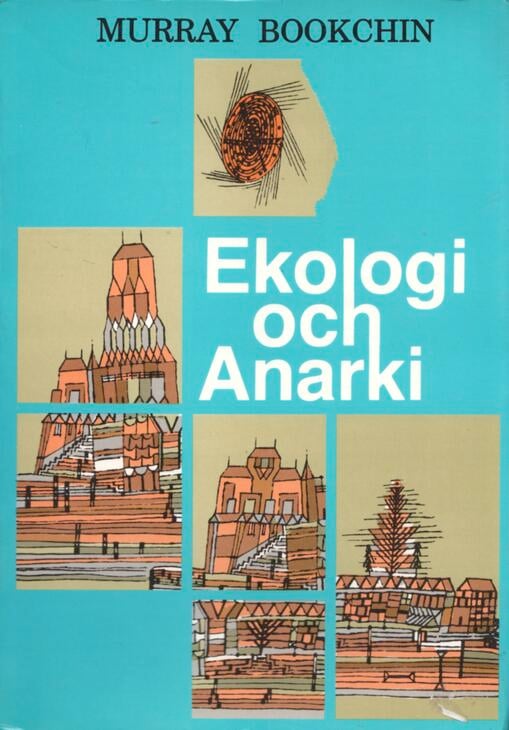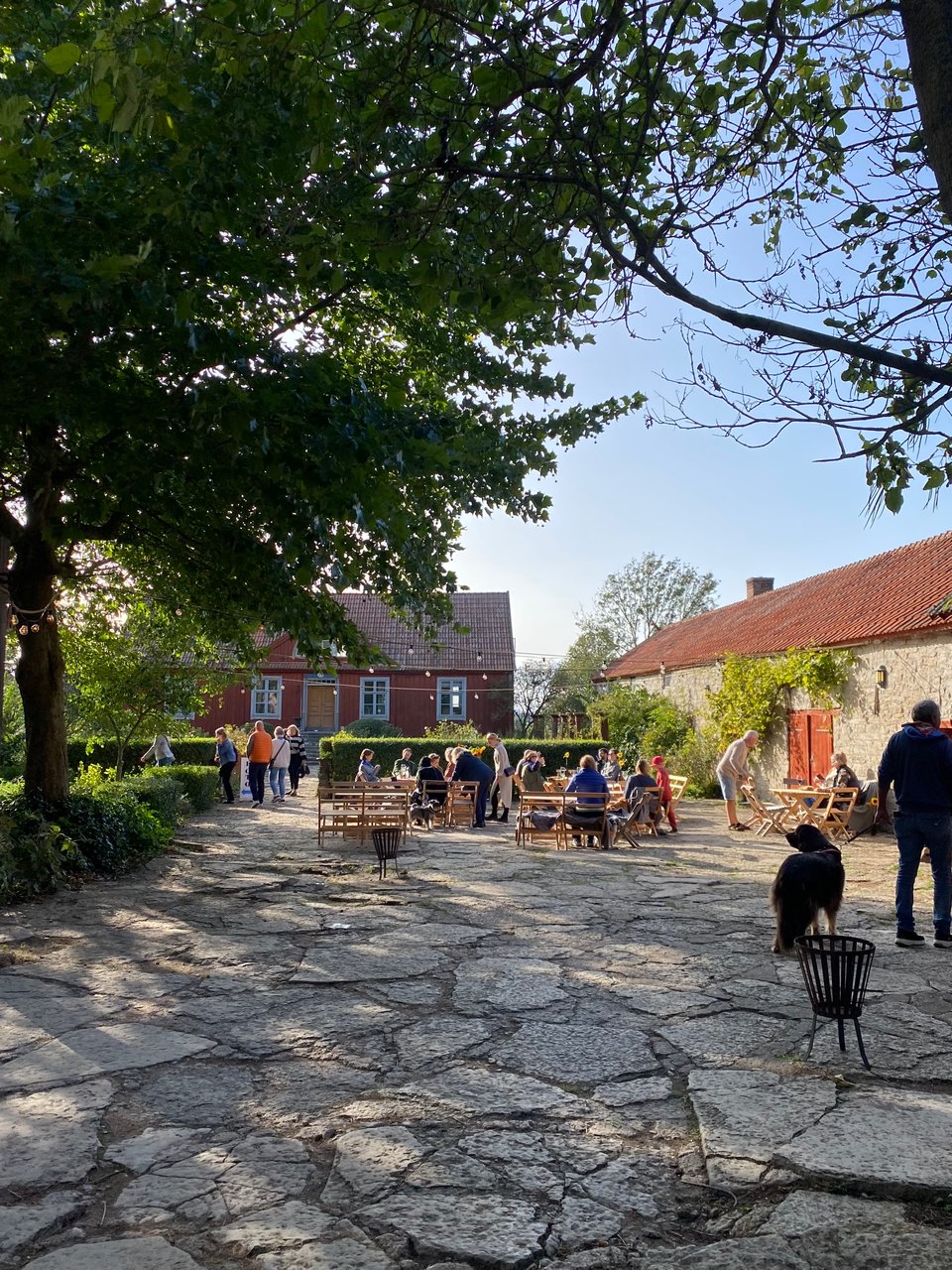Missiverna - Från Rojava till Kastlösa
Det går troll i skickandet av Missiverna, men jag hade lite sparat som får gå ut. Mina favoritnyhetsbrev är såna som bara hummar på och som är en slags uppdateringar av vad som har hänt sedan sist (om det så är en gång i veckan eller månaden), oftast filtrerat för sånt man här läst och som man fastnat för. Vill få till en sån rutin.
En notis i New York Times beskriver "Toward Tomorrow Fair" som ägde rum i juni 1978 på University of Massachusetts campus som en typ av mässa som kunde ha ägt rum idag:
The Toward Tomorrow project was begun in the summer of 1974 to focus public awareness on the possible future the world faces and thus serve as an advocate for change. The workshops are concerned with a “hands‐on” approach to the construction of wind‐power generators, solar collectors, electric automobiles, organic gardening, aquaculture and other skills.
Tidens futurist par excellence – R. Buckminster Fuller – verkar ha varit på plats för att dirigera en upplaga av hans "World Game" för att lösa komplexa problem.
This year, the fair will be held in co operation with the ninth World Game Workshop, a concept developed by R. Buckminster Fuller designed to formulate strategies for solving crucial global problems. The emphasis during World Game Workshop ‘78 will be on energy and shelter.
Någon som inte hade särskilt mycket till övers för Fullers form av futurism var den utopistiska anarkisten (men också praktikern) Murray Bookchin, också på plats. Bookchin höll ett tal som har hänvisats till på sistone (t.ex. i Sentiers) då det andas 2023 i sin kritik av en viss form av teknokratisk vision för hur samhälls- och klimatkriser ska lösas, men också vilka kriserna egentligen är. Ja, det är 45 år sedan.
I talet är udden är helt klart riktad mot Fuller, vars bild av "Spaceship Earth" är särskilt provocerande för den anarkistiske socialekologen:
I don’t believe that the Earth is a spaceship. I’m asking you to think about what it means to think of the Earth as a spaceship. It does not have valves. It does not have all kinds of radar equipment to guide it. It is not moved by rockets. It hasn’t got any plumbing. We may have plumbing. But it is not ‘a spaceship’. It’s an organic, living thing, to a very great extent, at least on its surface, built of inorganic material. It is in the process of growth and it is in the process of development. It is not ‘a spaceship’.

Inte heller för en viss typ av futuristisk urbanism (t.ex. Fullers geodetiska kupol) präglad av nya transportformer:
And if you believe in addition that the beauty, today, of change is that you can move all over the place in a helicopter, which will pick up your geodesic dome, or use some type of electronic communications to relate to somebody who is three thousand miles away, whom you may never see, then we are not changing, in the developmental sense, anything at all, we’re making things worse, and worse all the time.
"World Games" blir bara en form av ekofascism när man kalkylerar vilka som ska få plats på jorden och leva ett drägligt liv:
[...] or else we will become mere physicists, dealing with dead matter and dealing with people as though they are mere objects to be manipulated, in spaceships, or to be connected through various forms of electronic devices, or subject to world games, or finally, set adrift on a raft or a lifeboat in which they kick off anyone who threatens to eat their biscuits or threatens to drink their distilled water—and that becomes ecofascism. That becomes ecofascism, and it horrifies me to think that anything ecological—even that word ‘eco’—could be attached to fascism.
Man kan för övrigt lyssna på Bookchins tal, som är något mer improviserat och vittnar om vilken talare han verkar ha varit.
Första gången jag kom i kontakt med Bookchin var nog på mitt gymnasiebibliotek. Boken Ekologi & anarki måste ha varit lockande med sin kombination av protest (som jag uppfattade anarkism då) och natur. Jag är glad att jag gick ned för den frihetliga allén snarare än att jag valde att cruisa upp för Robert Nozicks och Ayn Rands motorväg till friheten. Jag vet inte om jag faktiskt läste den där boken, än mindre förstod den, men det faktum att jag gick på en gymnasielinje "med ekosofisk inriktning" där vi fick läsa om humanekologi, klimatförändringar och Arne Naess - redan i slutet på 1980-talet - måste ha spelat in.

Det är förresten andra gången på kort tid som jag återupptagit bekantskapen med Bookchin. Det var i en intervju med hans partner (och biograf) Janet Biehl som jag lärde mig (ja, sent säkert) om Bookchins inflytande på PKK:s grundare Abdullah Öcalan och för styrelseformen i Rojava-regionen:
The next thing I heard was that this leader, Abdullah Öcalan, the chieftain of the PKK [Kurdistan Workers’ Party], was arrested and tried. I remember watching that with Murray, but we thought he was just an old Marxist, and didn’t really think too much about it, although Murray was always very sympathetic with the Kurds. And then, in April 2004, we got a message from a Kurdish solidarity activist, a German man—there’s a lot of Kurds in Germany—and he wanted to organize a dialogue between Bookchin and Öcalan because, meanwhile, Öcalan had been sentenced to life imprisonment and was reading a lot of books about the left.
Slutnoter - samlat under 2023-09-01-2023-10-10:
Ter Sámi, dött språk sedan 2020 / Tenochtitlan, återskapad i 3D / Laurie Spiegels "The Expanding Universe" på fyra gitarrer (YT) / Merve Emre om tillståndet för kritiken / Noun Project: The Pride Icon Collection / Neef Rehman från The Conference 2023 / På den kroatiska ön Vis finns ISSA: Island School of Social Autonomy / Illustrerade kolibrier / Kelmscotts Chaucer på nätet / Var från min dator sin tid ifrån? / Tiny Desk-konsert med Caroline Polachek.
Vi var på Öland häromhelgen när det var den årliga skördefestivalen. Här en bild från Kastlösa:
